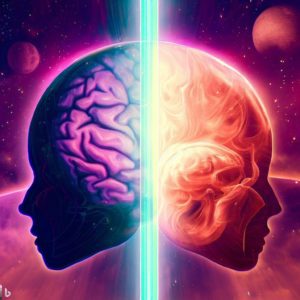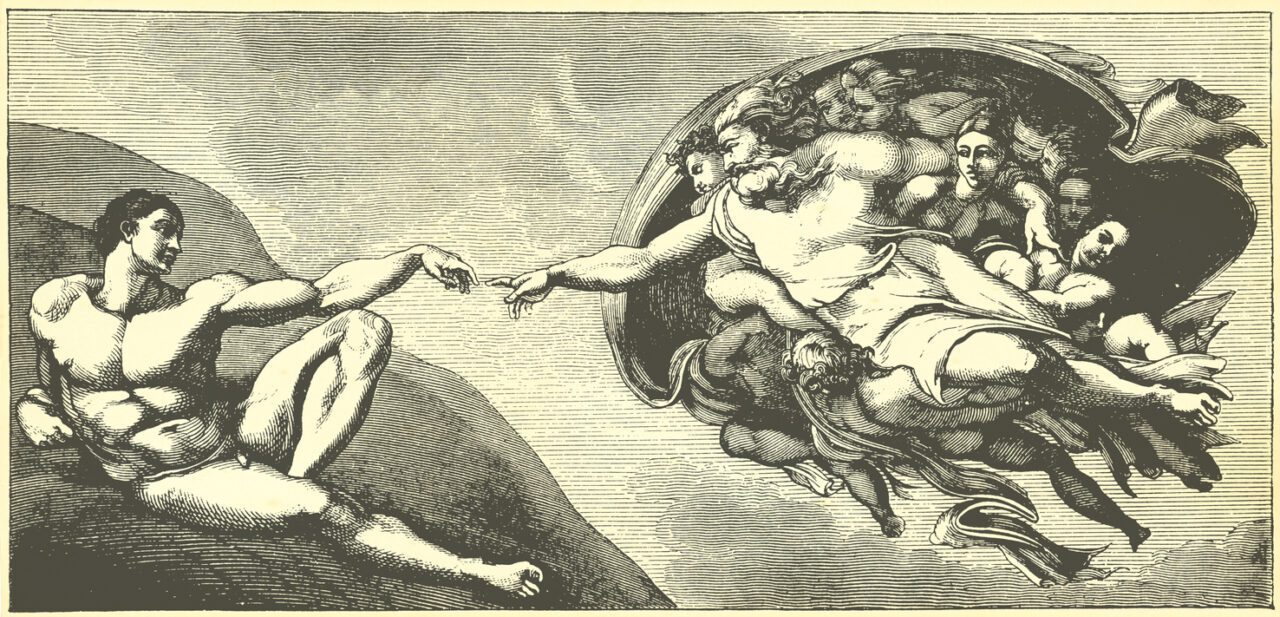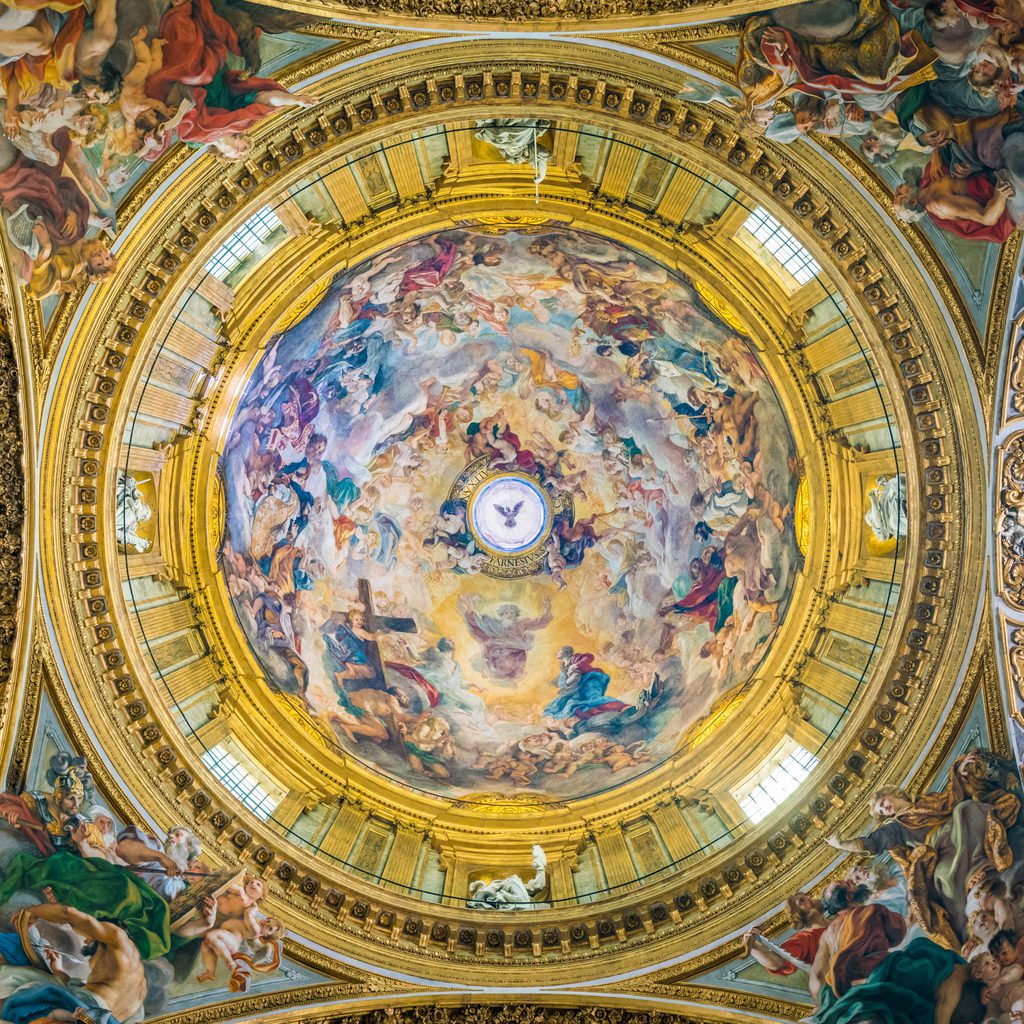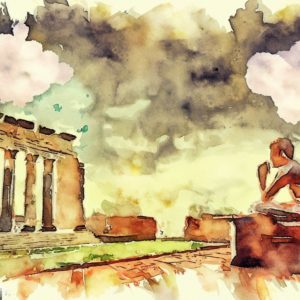Welcome back to these the discussions of the Logos of experience in truth.
When I ended last time, I’d gotten into the mystery of the male and the female, or of gender as is also stated in the esoteric work I spoke of called the Kybalion, and in particular, how this applies to the mind itself. That the mind itself has both a male and female quality to it: one part that receives, one part that gives or implants. You can say the conscious mind is the male mind that gives, and the subconscious mind is the female mind that receives as well.
We will get deeper into this once we get further into the mysteries themselves for it is important to understand mythologically, as well as spiritually or mystically, what is the male and the female in the external, so that it is more easily understood in the internal. Especially during these times of the questioning of the sexual aspects of gender itself.
I’ll toss this out as well as I have in several episodes: neurology has actually uncorked this ancient wisdom of the male and the female in the mind. As I stated, they simply think it’s some type of new scientific finding, when this in particular is extremely ancient knowledge of the interior workings of the mind.
The historian in me had also spoken a bit. It’s a well-known fact in Catholicism from converts to Catholicism, that opening the study of history is a pathway towards conversion, since it trumps any false histories or narratives that Pro-testants of the Church speak, at least as it is in regard to history.
I don’t think this is what led to my journeying back, and or into the Catholic Church, since I can’t really say I was part of it as a child, even though I was baptized Catholic around age five. In case you’re wondering, since I couldn’t get past the idea of Protestantism’s, Sola Scriptura, since that idea doesn’t exist in the Bible to begin with and because it would mean each of the disciples are damned to hell since they had no New Testament Bible to read, if they could read, since peasants of the countryside, which the disciples most certainly were, typically couldn’t read back then and it’s probably the reason why the majority of the New Testament is St. Paul’s writing since he obviously could read and write.
That Protestant tenant makes no sense to me if I look back further than 15th century Europe (Graham, 1997). It makes sense in a world revolutionized by Gutenberg’s printing press, that invention that gave rise to Protestantism’s Sola Scriptura stance along with the distaste of the corrupt bureaucracy of the Church at the time of course. It does make sense to say that all should have access to and be able to read the Bible for themselves and that the Bible should be followed exclusively. But when the attempt is to place the current worldview into the worldview of the past, well that’s when the things that have happened to Christendom have happened to Christendom, just as this attempt seems to happen every generation when the new generation tries to do away with the old generation by covering it up or altering it, instead of embracing the past as it was and learning from it if need be. As the historian’s maxim states: those that do not learn or study history are doomed to repeat it.
Now, if you want any further discussions regarding why or why not Catholic or Protestant from my point of view, off the top of my head, I honestly can’t give more than what surrounds Sola Scriptura or the compilation of the Bible and its history. Since Sola Scriptura fell apart for me once I put it to the test, I never bothered to learn to any deeper degree other than a lecture here and there, the differentiation of theological things between the two. Yes, of course I’m lying about that, I did learn more, but I can’t really think of what else putting myself on the spot right now.
But there are plenty of apologists out there that can help answer these types of things. I used to listen to lots of Catholic Answers back during the mini-revival I had in 2009, and they always had good stuff on there for those seeking knowledge of such things. I will mention such topics as I come across them.
But I am not an apologist. Just as I’ve said in the context of things I’ve spoken of, I’m also not a theologian. So, if I get things wrong from either point of view it’s because neither is my focus, the same with historian or mythological classical student of the ancient world and its myths.
The mystic unfortunately and or fortunately, however it is you want to look at it, has to be skilled at each and every one of these. But from what I’ve experienced, doesn’t ever really become master of any one for the mastery that occurs, the mastery that the mystic truly seeks, the mastery that God pushes the mystic towards: is the mastery of the self. Where the gift of the Holy Spirit may endow an apologist with discernment, a theologian with knowledge or wisdom, it gives the mystic mastery over the self. I won’t be so bold to say I’ve achieved this fully yet since the gifts of the Spirit unfold, like the symbol of the lotus in the East alongside the symbol of the rose in the West. So, the gift is given, but it takes time to manifest. It’s actually one of the theories I’ve got regarding the visions that are seen themselves. They are visions of the mystic’s future, at least in my case is what I saw. But one must still walk the path in order to reach the fulfillment of that vision even though God has already shown it, the possibility of that future, at least in the gift of the vision itself.





